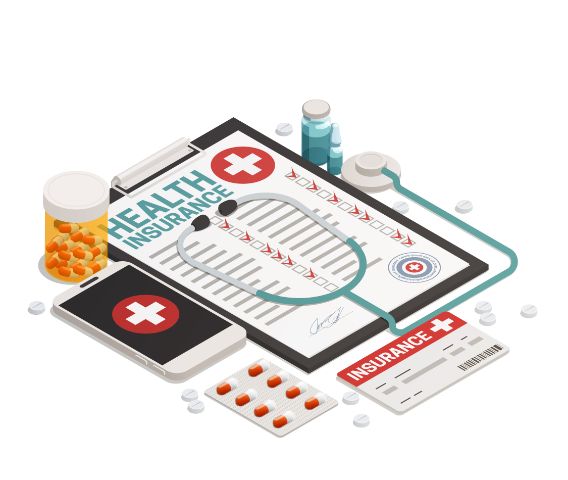Have Multiple Health Insurance Policies? Here’s How to Manage Them
Have Multiple Health Insurance Policies? Here’s How to Manage Them
Published on October 08, 2021. EST READ TIME: 3 minutes

When it comes to a medical insurance plans, one question that bothers policyholders a lot is, “Is the coverage enough?” While some people know that relying on the insurance cover provided by their employer may not be the best idea and buy their own individual plan, a few others buy a second or third plan too. The risk of critical or lifestyle illnesses or accidents is always there, and the cost of healthcare is constantly rising. Hence, having multiple insurance plans can provide you a better sense of security. Read on to know about the benefits and how you can manage them easily.
Benefits of multiple health insurance policies
Low premium:
As a policyholder, you have certain choices to increase your coverage. You can strengthen a single health plan or buy multiple policies. However, the benefit of buying multiple plans with smaller covers is that they come with smaller premium amounts as compared to a single policy with bigger coverage that demands a bigger premium. Small but multiple plans add up to provide you a bigger coverage without sending your annual budget for a toss.
Low risk of claim rejection:
Claims getting rejected by the insurer can take a toll on your family’s finances. Having multiple policies can save the day as a claim rejected by one insurance company can be accepted by another insurer. Similarly, if your first policy gets expired, you will remain covered by other policies.
Wider coverage:
You can buy different medical insurance plans from different insurers or the same insurer. Then compare the prices and benefits and choose to diversify in a way that provides you wider coverage. More importantly, you can pick a secondary plan to cover the areas, for example, a few pre-existing diseases that your primary plan doesn’t.
Tips to manage multiple insurance policies
Make useful combinations:
Taking two or three plans that are identical in structure won’t be that beneficial. You must pick plans that provide a boost to the existing ones. For example, if your first plan is a basic comprehensive plan, the second one can focus on critical illnesses or if your first one is an individual plan, you may want to opt for a family floater plan next. The combination can differ according to the health risks you are more vulnerable to and your budget. The aim should be to minimize risks by increasing the coverage judiciously.
Transparency is the key before signing up for multiple policies:
When making a claim request, inform all the insurers and their third-party administrators (TPAs) about it. This will help you in case you exhaust the limit of the first plan and want to use the second one. After the first insurer processes the claim, the TPA issues a settlement note along with certified copies of original documents submitted at the request of the policyholder. These documents are needed by the second insurer before it starts paying for the medical expenses.
Claim from the right policy:
Different plans mean different claim processes. It’s always a good practice to inform the second insurer separately, irrespective of whether the need to use it arises or not.
Experts suggest that if you have a group plan and an individual plan, try to use the former for filing a claim, as doing so for the personal plan may lead to a spike in premium at the time of renewal. However, in case of a family floater, premiums won’t be affected that much as the latter is more liberal in its structure. Some of them even cover pre-existing diseases.
Conclusion
There is no dearth of medical insurance plans in the market today, each offering different benefits. But remember that declaring all your policies while buying a new one is the best way to go about it as you will get an accurate premium amount and a smooth claim experience. While increasing your cover is necessary, it is crucial to know the terms and conditions, especially the claim settlement rules.
Disclaimer: The above information is for illustrative purpose only. For more details, please refer to policy wordings and prospectus before concluding the sales.
RELATED ARTICLES
Don't Ignore investing in Insurance as a risk management tool in your early career
8 Things to Consider Before Buying Health Insurance
Why Should You Compare Health Insurance Policies Before Buying?










 Health Insurance
Health Insurance  Travel Insurance
Travel Insurance  Car Insurance
Car Insurance  Cyber Insurance
Cyber Insurance  Critical Illness Insurance
Critical Illness Insurance
 Pet Insurance
Pet Insurance
 Bike/Two Wheeler Insurance
Bike/Two Wheeler Insurance  Home Insurance
Home Insurance  Third Party Vehicle Ins.
Third Party Vehicle Ins.  Tractor Insurance
Tractor Insurance  Goods Carrying Vehicle Ins.
Goods Carrying Vehicle Ins.  Passenger Carrying Vehicle Ins.
Passenger Carrying Vehicle Ins.  Compulsory Personal Accident Insurance
Compulsory Personal Accident Insurance  Travel Insurance
Travel Insurance  Rural
Rural 











